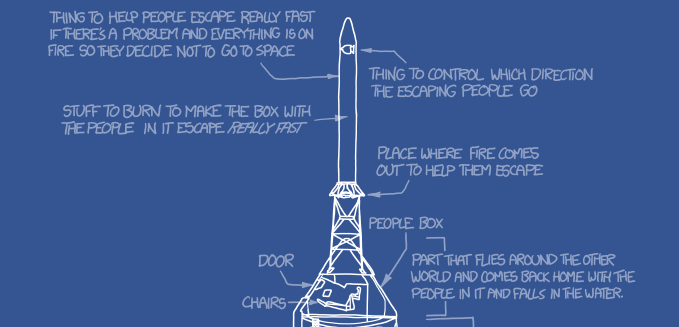academic writing lecture 1 / 3
David R. MacIver
- academic writing skills
- writing skills
- communication skills
- academic writing skills
- writing skills
- communication skills
how to explain things
explanation is not...
- making someone understand something.
- persuading someone.
- showing off how clever you are.
explanation can be...
- teaching something new.
- clarifying something already known.
- helping organise knowledge.
- making implicit knowledge explicit.
explanation is always...
- about something.
- to someone.
how to explain anything
- determine what you need to explain.
- determine what the audience already knows.
- clearly express the first in terms of the second.
Definition: Let \(X\) be a topological space. A sequence \(x_n \in X\) converges to \(x \in X\) if the filter generated by the tail sets of \(x_n\) converges to \(x\).
was that a good explanation? no. at least, not in this context.
prerequisites
- topological space
- filter
- filter convergence
- generated filter
- tail sets
- sequence
exercise 1
Split up into pairs for a roleplaying exercise. One of you will be roleplaying as a medical student, the other as yourself.
The med student has just asked the question "What actually is a web browser?", the other has to try to answer.
You have five minutes to attempt to answer.
how was that?
what is a web browser?
A web browser is a software application for accessing information on the World Wide Web. When a user opens a particular website, the web browser retrieves the necessary content from a web server then displays the resulting web page on the user's device.
https://en.wikipedia.org/wiki/Web_browser
prerequisites
- World Wide Web
- website
- web server
- web page
- software application
- user
- device
what is a web browser?
A piece of software that lets you access documents and applications that people have made available, even when they are on a different computer than yours.
Why do you want to know?
"The site I was on told me that my web browser was unsupported and I should use Chrome."
the curse of knowledge
When you understand something, it is very hard to imagine not understanding it.
the XY problem
People often ask about X when they really want to know about Y.
determine what you want to explain
- resist detail
- try to focus on useful information
determine what the audience already knows.
- less than you think
- but more than you about the context!
how to explain anything:
- determine what you need to explain.
- determine what the audience already knows.
- clearly express the first in terms of the second.
tools to help you explain clearly
lies to children
A "lie-to-children" is a statement which is false, but which nevertheless leads the child’s mind towards a more accurate explanation, one that the child will only be able to appreciate if it has been primed with the lie. "Yes, you needed to understand that” they are told, "so that now we can tell you why it isn’t exactly true."
lies to children students
A "lie-to-students" is a statement which is false, but which nevertheless leads the student’s mind towards a more accurate explanation, one that the student will only be able to appreciate if it has been primed with the lie. "Yes, you needed to understand that” they are told, "so that now we can tell you why it isn’t exactly true."
supporting examples
- what is a web browser?
- a sequence converges...
concept lists
- explanation is helping someone understand
- curse of knowledge
- concept lists
- ...
user/audience personas
Max the Med Student: An 18 year old medical student at Imperial College London, originally from Sheffield, likes classic poetry and football.
Lucy the Lecturer: Insert a caricature of your favourite lecturer here at Imperial here.
beta readers
Read each other's work (after you've already written your first draft, so you don't inadvertently copy)! Critique gently.
simplify (sometimes)
What's the most complex bit of your explanation? Can you simplify that? Do you like the simplified version better?
Can you replace fancy words with common ones?
upgoer five

Use splasho.com/upgoer5/ to try writing your own. Great for experimenting with simplifying explanations, but not necessarily great for the end result!
one thing at a time
If you try to explain too much at once, they won't get any of it.
Try to focus on a single aspect of the problem at once and explain that thoroughly before moving on.
Especially true with new words.
exercise 2
Same as before, but your question is now: What is a programming language?
(Or we can do Q&A)